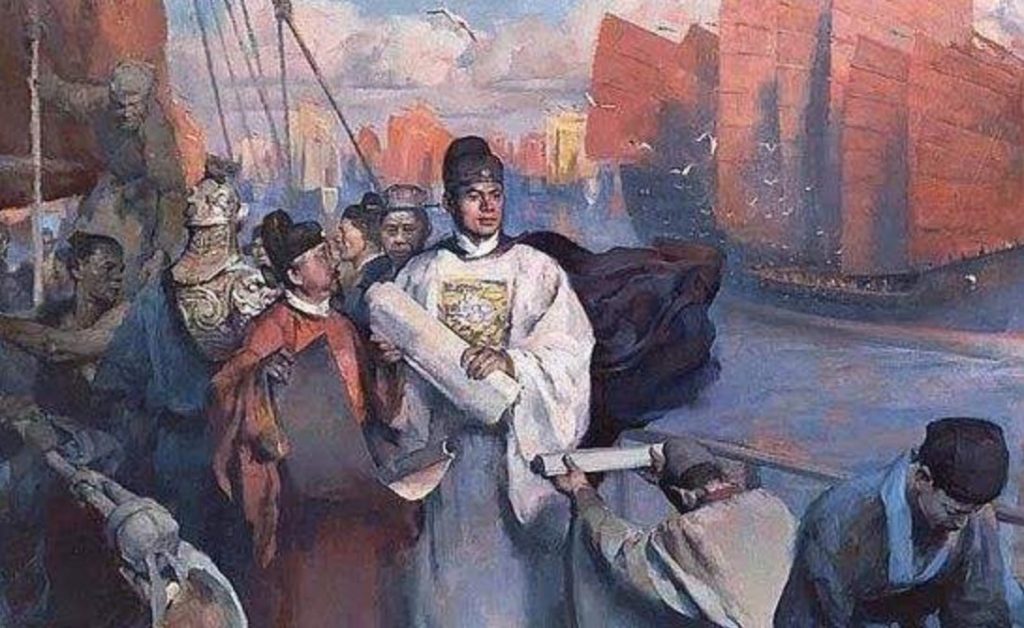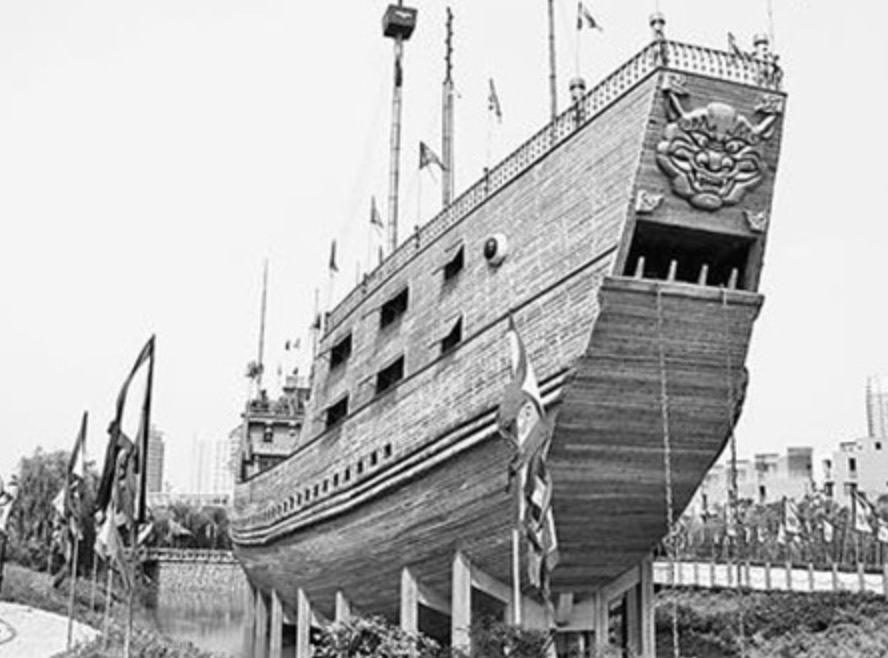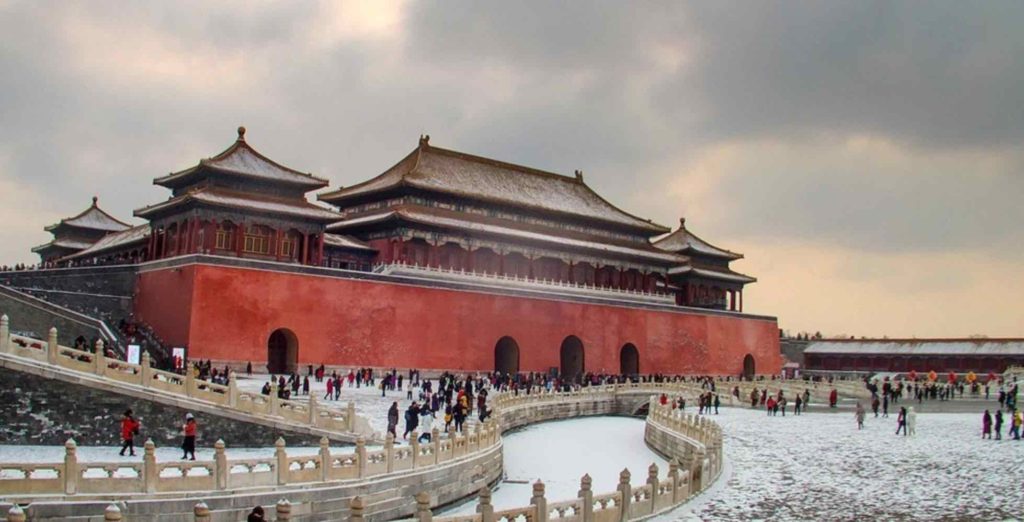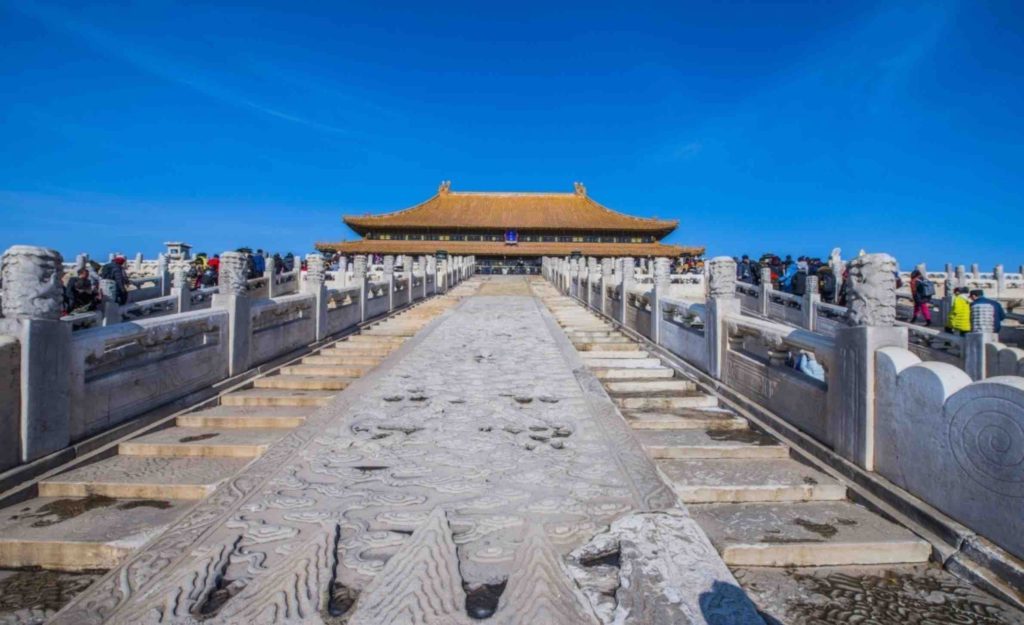If you were a diplomat, how would you deal with trade frictions among countries? Obviously, fair trade is a prerequisite for cooperation. However, this open and modern concept would fail in Zheng He’s voyage.

Zheng He led seven ocean-going voyages from 1405 to 1433. His treasure fleet reached as far as the coast of East Africa, but the purpose of the voyage wasn’t for the colonial or economic plunder.
The purpose of Zheng He’s voyage was to show the strength of the Ming Dynasty, restore and develop diplomatic relations between the Ming and overseas countries.
Besides, bringing back various luxuries for the emperors and nobles. Although his fleet made some trade, it was all at a loss. After 1433, Zheng He never sailed again.
Three reasons ended Zheng He’s voyages
Cost of Voyage
Zheng He began his first voyage obeying the order of Yongle Emperor in 1405. The scale of the treasure fleet wasn’t only very grand, but also the cost was extraordinarily huge.
Zheng He’s fleet consisted of more than 200 ships and 27,000 sailors. Before Zheng He officially set sail, the Ming Dynasty spent a lot of time and money to build this invincible fleet and train sailors.
According to Chinese official historical recorded, it took about 5 to 6 thousand taels of silver to build a treasure ship. In other words, a treasure ship cost more than half a million dollars because a tael of silver was equivalent to 116 dollars in the Ming Dynasty.

These were just the cost of building the ship and not the cost of ocean voyage. To make matters worse, Zheng He’s fleet would send many expensive gifts such as silk and porcelain to the coastal dynasties, which actually increased the financial burden of the Ming Dynasty.
After sailing, Zheng He’s fleet would bring back some diplomats. When these diplomats came to the Ming Dynasty, they would be awarded the dynasty’s gifts according to the rank of the office. Throughout the rewarding process, as the host, Ming Dynasty was very generous and would not disdain any gift from a diplomatic envoy.
Under the pressure of such huge expenses, it was also a kind of voyage that was not for the profit. Once the Ming Dynasty’s economic decline, the termination of Zheng He’s voyage was an inevitable trend.
During Zhu Gaochi’s reign, the emperor finally accepted the minister’s suggestion that the cost of voyage was expensive and ended Zheng He’s voyages.
Policy of Ming Dynasty
Since the Han dynasty, Chinese feudal dynasties implemented the policy of emphasizing agriculture and suppressing commerce, and the Ming Dynasty was no exception. The purpose was to restrain the development of commodity economy and to ensure the stable development of natural economy by means of state intervention.
As the natural economy expanded, the rule of the Ming emperor would become more stable. However, the essence of Zheng He’s voyages was the maritime industry and overseas trade. Once the development of these two aspects, it would change the economic structure of the Ming Dynasty.
Therefore, in order to prevent the adverse effects of navigation, the Ming Dynasty stipulated that the people couldn’t conduct overseas trade except for the official. However, non-governmental overseas trade had never been interrupted, especially in the coastal areas of Guangdong, which was the main area for non-governmental voluntary overseas trade.

In fact, the emperor and officials didn’t want to promote the development of overseas trade, because it would shake their rule, just as the development of European overseas trade made kings lose their thrones. To implement the policy of emphasizing agriculture and suppressing commerce and to limit the growth of overseas trade, Zheng He’s voyage was finally canceled.
Internal Crisis
The economic crisis was the direct cause of Zheng He’s voyage stopping, but the political turmoil was more dangerous than the economic crisis.
From 1405 to 1433, the ruling ability of the Ming emperor was declining. At the same time, eunuchs gradually became political heavyweights and began to interfere in internal affairs until the disintegration of the Ming Dynasty.

After Emperor Xuande, the Ming Dynasty had lost the ability to dispatch a treasure fleet. What’s worse, the problems of domestic land mergers and peasant taxation aggravated social conflicts, causing the Ming Dynasty to lose a stable and prosperous domestic environment.
On the western frontiers and coastal areas of the Ming Dynasty, the enemy’s strength was growing. Under such circumstances, the dynasty had to concentrate resources to prevent internal disintegration.
In conclusion
The economic and political conditions of the Ming Dynasty determined whether Zheng He could continue to sail.
More importantly, the treasure fleet promoted economic, technological, and cultural exchanges and created a favorable international environment for the Ming Dynasty. As a eunuch, Zheng He is also famous for his voyage.




